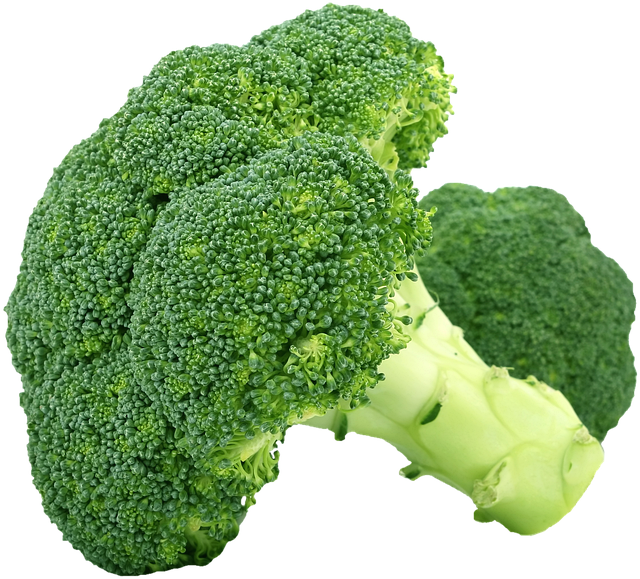To Improve Organic Search Rankings, follow these steps:
1. Keyword Research: Utilize tools like Google Keyword Planner, SEMrush, or Ahrefs to uncover popular search terms and phrases used by potential customers.
2. High-Quality Content: Create engaging content that meets user needs through thorough research, natural keyword usage, logical structuring, storytelling, and diverse media formats.
3. On-Page Optimization: Refine meta titles, headings, and descriptions for uniqueness and relevance. Ensure excellent readability and relevant info to enhance user experience.
4. Build Backlinks: Secure high-quality backlinks from reputable niche websites through guest blogging and resource pages. Aim for links from influential industry sites.
5. Optimize User Experience: Prioritize intuitive navigation, quick loading times, and mobile responsiveness to encourage longer sessions and signal site value to Google.
6. Regular Updates: Revise existing content with new insights, data, or trends to keep your site current. Monitor performance using analytics tools to gain insights and optimize based on data-driven opportunities.
In today’s digital landscape, improving organic search rankings is paramount for online success. This comprehensive guide navigates the essential content strategies to boost your site’s visibility and drive organic traffic. From uncovering relevant keywords through rigorous research to crafting compelling content, optimizing on-page elements, and building quality backlinks, each section unveils a strategic approach designed to elevate your website in the search results. Embrace these tactics to unlock your full potential in the vast digital realm.
Understanding Organic Rankings: The Basics

Organic rankings refer to a website’s position in search engine results pages (SERPs) for non-paid, or organic, search queries. It’s a fundamental aspect of digital marketing as it drives natural traffic to websites. When users search for keywords relevant to your business, improving your organic search rankings can increase visibility and attract potential customers. This process involves understanding user intent behind specific search terms and creating content that meets their needs effectively.
By optimizing content with strategic keywords, providing valuable information, and ensuring a seamless user experience, you can enhance your website’s chances of securing higher rankings over time. Search engines like Google prioritize relevant, high-quality content, so investing in content creation and optimization is key to achieving long-term success in organic search results.
Keyword Research for Effective Content Strategy

Keyword research is a fundamental step in crafting a successful content strategy aimed at improving organic search rankings. It involves identifying and understanding the terms and phrases that potential customers use when searching for products, services, or information related to your business. By utilizing tools like Google Keyword Planner, SEMrush, or Ahrefs, you can uncover valuable insights into search volume, competition, and user intent.
This process helps content creators focus on keywords with high search potential and low competition, ensuring that the generated content resonates with target audiences. Incorporating these keywords naturally within compelling and informative content not only boosts visibility in search engine results but also enhances user experience. Effective keyword research allows for strategic placement of relevant terms, increasing the likelihood of capturing the interest of organic traffic and ultimately driving conversions.
Creating High-Quality, Engaging Content

Creating high-quality, engaging content is a cornerstone in improving organic search rankings. Search engines prioritize websites that offer valuable and relevant information to their users. Crafting content with a deep understanding of your target audience’s needs and interests ensures it resonates with both readers and algorithms. This involves thorough research, using keywords naturally throughout the text, and structuring the content logically for easy navigation and comprehension.
High-quality content not only informs but also captivates. Incorporating compelling storytelling, diverse media formats, and a conversational tone enhances user experience, encouraging longer browsing sessions and lower bounce rates. Regularly updating your website with fresh content signals to search engines that your site is active and relevant, further boosting its visibility in search results.
Optimizing On-Page Elements for Better Visibility

To improve organic search rankings, optimizing on-page elements is a crucial step. This involves enhancing key aspects like meta titles, headings (H1 to H6), and meta descriptions, ensuring they are unique, relevant, and incorporate target keywords naturally. Well-optimized titles and headings not only help search engines understand your content’s topic but also attract users’ attention, encouraging them to click through from the results page.
Additionally, focusing on high-quality, engaging content that provides value to readers is essential. Search engines prioritize content that offers a great user experience, including readability, relevant information, and multimedia elements. Regularly updating content with fresh insights and maintaining a strategic keyword placement can significantly boost visibility, driving more organic traffic to your website.
Building Quality Backlinks: A Strategic Approach

Building high-quality backlinks is a strategic and essential component in improving organic search rankings. It involves securing relevant, authoritative links from reputable websites within your niche. This can be achieved through various methods such as guest blogging, where you contribute valuable content to other platforms, earning a link back to your site; or by creating resource pages that naturally attract links from other sites looking to provide their audience with useful information.
A strategic approach considers not just the quantity but also the quality and relevance of these backlinks. Focusing on gaining links from influential websites in your industry can significantly boost your search engine rankings. This strategy should be complemented by a consistent effort to create valuable content that naturally attracts links, ensuring a sustainable and effective method for improving your site’s visibility and credibility in organic search results.
Leveraging User Experience and Website Performance

Optimizing user experience and website performance is a powerful strategy to boost your site’s visibility and improve organic search rankings. Google prioritizes websites that offer a seamless, intuitive navigation experience, loading quickly, and providing valuable content. By ensuring your site is mobile-friendly, easy to use, and optimized for fast loading times, you directly impact user satisfaction and encourage longer browsing sessions. This, in turn, signals to search engines that your website is a reliable source of information, increasing the chances of higher rankings.
Additionally, focusing on content accessibility and usability enhances the overall experience. Well-structured content, clear headings, and meaningful meta descriptions not only assist users but also help search engine crawlers understand your pages’ context better. Regularly updating your website with fresh, relevant content keeps both visitors and search engines engaged, demonstrating your site’s authority and keeping it at the forefront of organic search results.
Regularly Updating and Refreshing Content

Regular updates and content refreshing are vital strategies to improve organic search rankings. Search engines prioritize fresh, relevant content as it reflects a website’s commitment to providing up-to-date information. By regularly updating your existing content with new insights, data, or changes in industry trends, you not only keep your site current but also signal to search engines that your resource is dynamic and valuable.
This strategy involves revisiting older articles, identifying gaps, and incorporating fresh perspectives. For instance, you can add new subheadings, include the latest statistics, update references, or even expand upon existing content by creating interconnected pages. Such efforts not only enhance user experience but also encourage search engines to crawl and index your site more frequently, ultimately boosting your website’s visibility and ranking potential.
Monitoring and Analyzing Your Organic Growth

To effectively improve organic search rankings, continuous monitoring and analysis of your website’s performance are essential. Track key metrics such as organic traffic, keyword rankings, bounce rates, and conversion rates to gain valuable insights into what’s working and what needs adjustment in your content strategy. Regularly reviewing these data points allows you to identify trends, understand user behavior, and make data-driven decisions that enhance your site’s visibility and appeal to search engines.
By leveraging analytics tools, you can pinpoint which pages or topics are driving organic growth and which ones may need better optimization. This information empowers you to prioritize content updates, focus on high-performing keywords, and create more engaging, relevant content that aligns with user intent. Ultimately, consistent monitoring and analyzing your organic growth will help refine your strategy, ensuring your website continually improves its search rankings over time.
